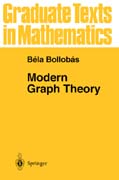I'm Arvind, a Rustacean and Arch Linux User (btw). I'm interested in:
- Machine Learning
- Computational Linguistics
- Epidemiology
- Music Theory
- Discrete Mathematics
The research papers that I've been consuming lately.
-
Zhou, J., & Sander, J. (2003). Data Bubbles for Non-Vector Data. In Proceedings 2003 VLDB Conference (pp. 452–463). Elsevier. https://doi.org/10.1016/b978-012722442-8/50047-1
-
Bhola, I. (2023). Dialectal Variation and Mutual Intelligibility of Hindi in Delhi. International Journal of Languages and Culture, 3(2), 55–64. https://doi.org/10.51483/ijlc.3.2.2023.55-64
-
Díaz, M., & Switkes, J. (2021). Speaking out: A mathematical model of language preservation. Heliyon, 7(5), e06975. https://doi.org/10.1016/j.heliyon.2021.e06975
-
Abrams, D. M., & Strogatz, S. H. (2003). Modelling the dynamics of language death. Nature, 424(6951), 900–900. https://doi.org/10.1038/424900a
-
Satyendra, R. (2004). An Informal Introduction to Some Formal Concepts from Lewin’s Transformational Theory. Journal of Music Theory, 48(1), 99–141. https://doi.org/10.1215/00222909-48-1-99
 | If I were a Springer-Verlag Graduate Text in Mathematics, I would be Bela Bollobas's Modern Graph Theory. I am an in-depth account of graph theory, written with the student in mind; I reflect the current state of the subject and emphasize connections with other branches of pure mathematics. Recognizing that graph theory is one of several courses competing for the attention of a student, I contain extensive descriptive passages designed to convey the flavor of the subject and to arouse interest. Which Springer GTM would you be? The Springer GTM Test |




